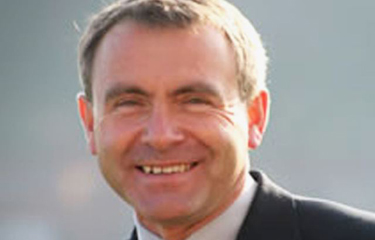While the still-unknown nature of the United Kingdom’s withdrawal from the European Union continues to elevate worry levels across much of the seafood sector, the country’s new fisheries minister, Robert Goodwill, is confident that opportunities should arise from the country once again becoming an independent coastal state and trading nation.
The minister, who was appointed to the position in March, told delegates at the 50th Annual Conference of the Shellfish Association of Great Britain (SAGB) in London that the Department for Environment, Food and Rural Affairs (DEFRA) was working hard to ensure the disruptions to seafood supply routes would be minimized, and to also pave the way for new trade opportunities.
“I am aware that the E.U. exit is causing serious concerns in this industry, especially the impact of a possible ‘no-deal’ Brexit, and this will perhaps lead to the need for additional export and health certificates and the subsequent delays that these may incur. Our priority is ensuring that trade can continue as smoothly as possible and with minimal disruption,” he said.
With 60 percent of U.K. shellfish exports going to E.U. markets and as shellfish provided 46 percent of the total value of U.K. vessel landings in 2017, at GBP 342 million (USD 434.3 million, EUR 389.6 million), Goodwill welcomed a project conducted by SAGB and the National Federation of Fishermen's Organisations (NFFO) to identify the main elements of the shellfish trade and the risks associated with Brexit.
While continuing to work alongside the two bodies and the wider industry to expand this understanding, the U.K. government is also “seeking a bold and ambitious free trade agreement with the E.U.,” that will support the trade, in addition to working with overseas counterparts on establishing additional FTAs, he said.
“Working with the SAGB, government has already secured market access for supplies of live nephrops to China estimated at GBP 1 million [USD 1.3 million, EUR 1.1 million] over the next five years.”
Future industry funding continues to be another hot topic, and particularly what will replace the European Maritime and Fisheries Fund (EMFF) grants that have become particularly important for nurturing the United Kingdom’s aquaculture sector.
Goodwill acknowledged that the EMMF had played a key role in supporting this growth, and that in the latest round of funding – as of the end of 2018 – some 102 projects that directly support the U.K. aquaculture sector had been backed – to the value of GBP 14.3 million (USD 18.2 million, EUR 16.3 million).
It’s expected that the EMFF will continue to be open for new projects until 2020, he said.
The minister also reminded the conference that in the event of a “no-deal,” the U.K. Chancellor announced in July last year that all EMFF projects approved before the closing date of the current program (December 2020) would be fully funded. Furthermore, on 10 December, 2018, Michael Gove, Secretary of State for Environment, Food and Rural Affairs, had announced an additional GBP 37.2 million (USD 47.2 million, EUR 42.4 million) of funding for the U.K. seafood sector for 2019 and 2020 “to boost the industry as we become an independent coastal state.”
Gove has also committed that the government will put in place a new domestic long-term arrangement to support the U.K. fishing industry from 2021 that will be comparable to the EMFF, Goodwill said.
“Brexit certainly presents challenges for government and industry too, but it also provides opportunities. Opportunities both to better brand our natural resources and to also capitalize on our new agreements as we establish ourselves once again as a global trading nation. As the saying goes, the world is our oyster, but I don’t want to limit our ambitions to just one species,” he said.







